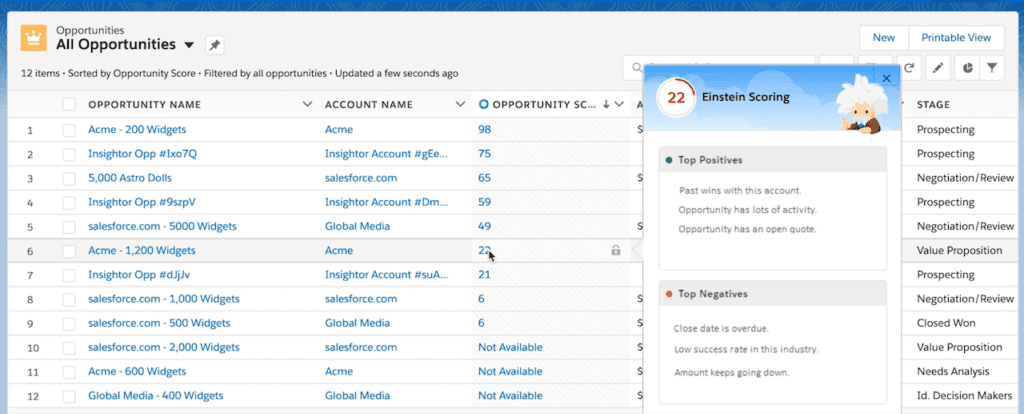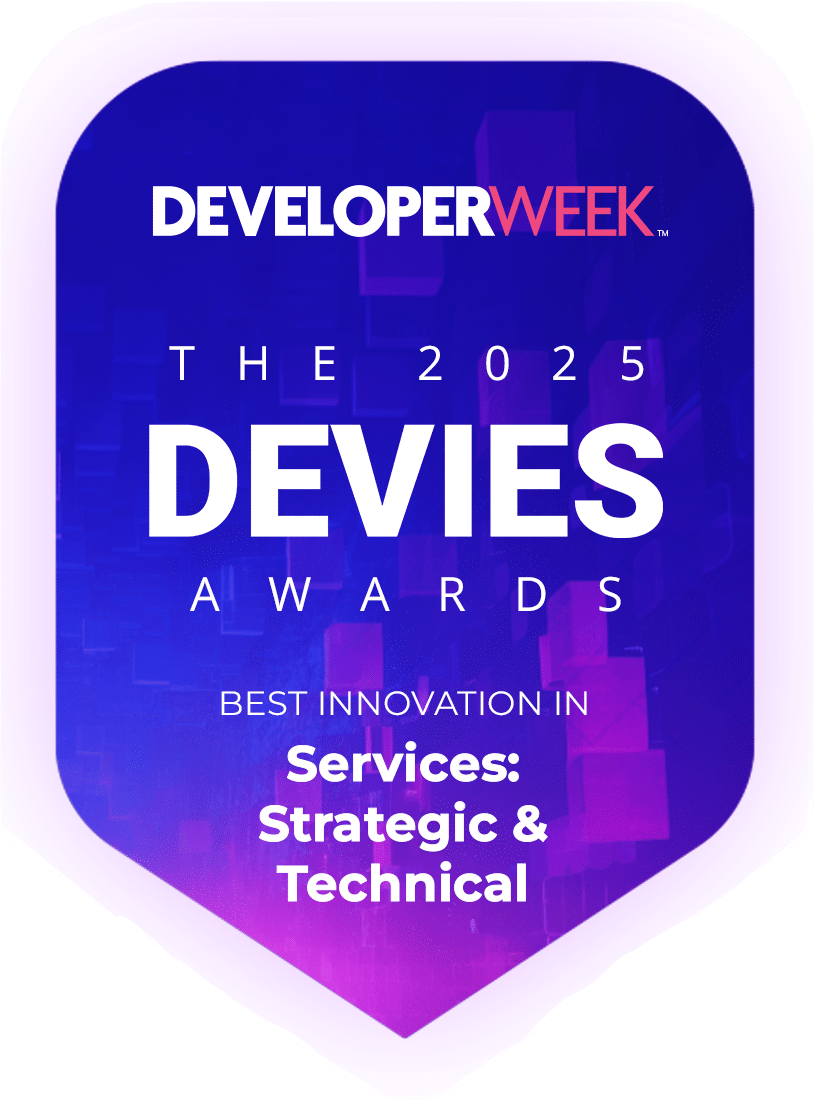
If you are responsible for increasing revenue at a medical device company, you’ve probably heard about different AI solutions for sales teams. But you may be wondering exactly how artificial intelligence can help to increase sales performance.
A well-implemented instance of Salesforce Sales Cloud keeps your sales team organized. CRM for sales gives you the visibility you need to manage your team’s efforts. Your sales team may also be communicating internally with Slack, which is now owned by Salesforce.
For Salesforce customers across many types of healthcare industry businesses, there are two general categories of AI that can be used to make sales reps more efficient and increase your team’s sales. They are:
1. Salesforce’s native Einstein AI offering
2. AI-driven solutions from third-parties that integrate with Salesforce (and Slack)
When it comes to examples of supercharging medical device sales with AI, It’s helpful to think of AI as having both sprint and endurance components. We’ll call these Sprint AI for Sales and Endurance AI for Sales, respectively.
Sprint AI for Sales

Sprint AI means that you can take immediate advantage of previously developed machine learning algorithms without first collecting any of your own sales activity data.
As with a footrace over a short distance, this form of AI for sales gives your team fast results.
Some forms of Sprint AI for sales surface important information that may otherwise remain buried in a landscape of Lead, Opportunity, and Activity data.
AI-Powered Lead Pursuit & Qualification
A well-known drain on salespeople’s time is following up on Leads that, while marketing qualified, do not turn out to be sales qualified.
Unlike traditional “one size fits all” outbound lead nurture flows, AI-driven solutions engage in two-way conversations with Marketing Qualified Leads (MQLs).
These solutions can intelligently select the appropriate email communication flow from dozens of pre-defined conversations.
They can also be used to automatically inject a sales manager’s touch — “I just wanted to make sure that Mike got you all the information you need about our newest device.”
Recommended Opportunity Updates
AI can easily spot the following:
- A meeting log from a salesperson at a health system
- A deal forecast to close at the health system in the current quarter
- A lack of corresponding updates to the Salesforce Opportunity record
In this example, the action the AI can take is to message the salesperson and their manager in a Slack channel and prompt them to update key Opportunity fields such as Close Date and Next Steps.
Alerts About Deals Moving in the Wrong Direction
In the absence of AI, if a salesperson moves the stage or forecast value of an Opportunity backward, that change may go undetected.
AI can surface reversals to key deals. This information is helpful for:
- Accurate forecasting
- Creating coaching opportunities
- Determining if executive deal involvement is needed
Alerts About Account Health Score Declines
One of the responsibilities of a sales leader is to be aware of important customer Accounts that have a health score moving in a negative direction.
Traditionally, account managers have had to visually scan reports and list views to spot at-risk Accounts. AI, on the other hand, delivers important health score changes directly to an account manager and to upline management. This automation eliminates relying on a person to discover this information.
What’s more, if the information is delivered in the form of a Slack message, a sales manager can @ reply to the account manager suggesting what actions to take or whether to schedule a time to discuss an at-risk account.
Endurance AI for Sales

Endurance AI requires collecting your own data sets in the short term in order to better guide your salespeople in the long term. The AI’s machine learning component may need to learn from thousands of Leads, Opportunities, and Tasks.
As with an ultra runner who has to cover a hundred miles of variable terrain, the finish line is a lot further off than a sprinter’s finish line.
Lead Scoring
Traditional lead scoring is based on a set of rules that are, in turn, based on information about prospects’ behavior that’s collected while they are in the marketing funnel. These include things like website page views and email link clicks.
However, as MQLs flow into Salesforce from a marketing automation system such as Pardot, how should your salespeople prioritize those leads?
Since AI is good at understanding patterns, it can score leads based on factors that caused past leads to turn into sales qualified (SQLs). Because this approach is based on data that is specific to an organization, it must be collected over the course of time before AI can determine patterns.
Einstein Lead Scoring constantly re-analyzes Lead data every ten days and refreshes Lead scores. It also factors in new trends as they emerge.
Opportunity Scoring
Einstein Opportunity Scoring requires that Einstein analyzes the movement of hundreds of a sales team’s Opportunities over time. From there, Einstein is able to create a predictive model and assign a score to each open Opportunity.
Salespeople and their managers can use the Opportunity score as a guide for which Opportunities to focus on.

Opportunity Insights
Let’s say a specific competitor has been mentioned in the notes of many previous Opportunities.
If mentions of that competitor historically correlated with lower close rates, the fact that the same competitor is mentioned on an open Opportunity can trigger an alert in the form of insights provided by Einstein.
Another example is that a salesperson can receive a reminder to follow up if there hasn’t been any recent communication for a high-value opportunity.
What’s next
In the Salesforce and Slack world, both native and third-party AI solutions for sales are proliferating. The technology will only get better.
By correlating your medical device organization’s sales process improvement needs with the capabilities of Sprint AI and Endurance AI solutions, you can decide which AI solution(s) to start with.
To discuss which AI solutions have the greatest potential to complement the sales activities of your medical device organization, please contact one of our Salesforce experts.



